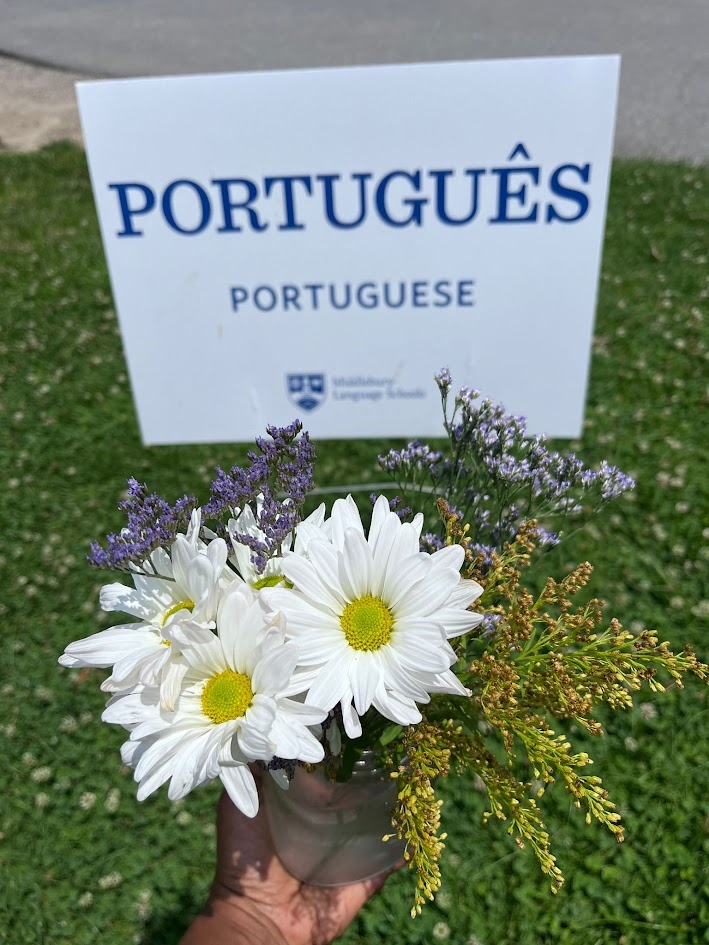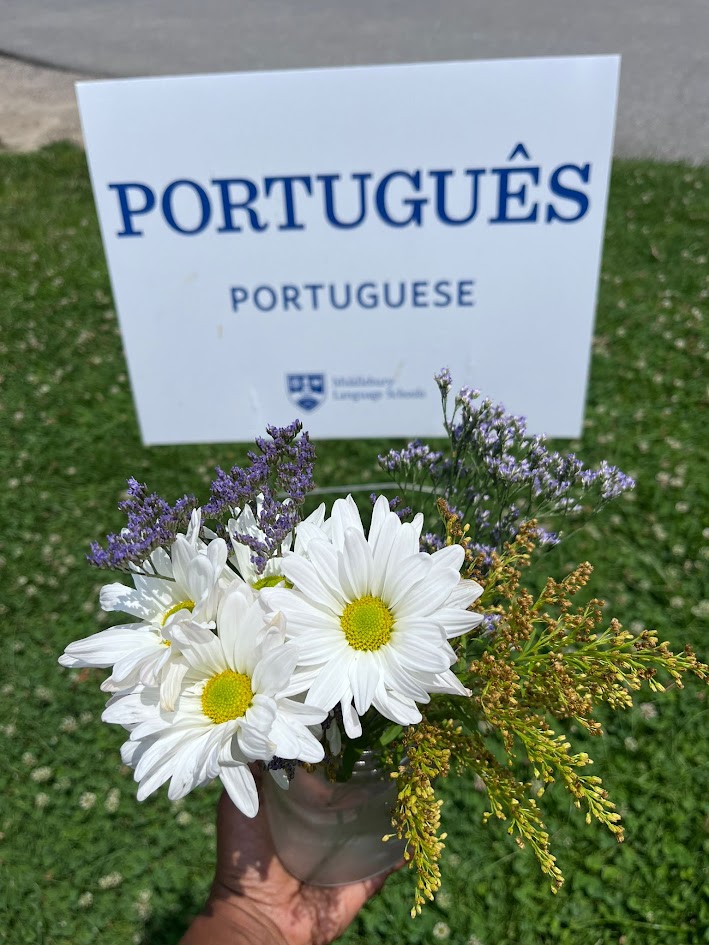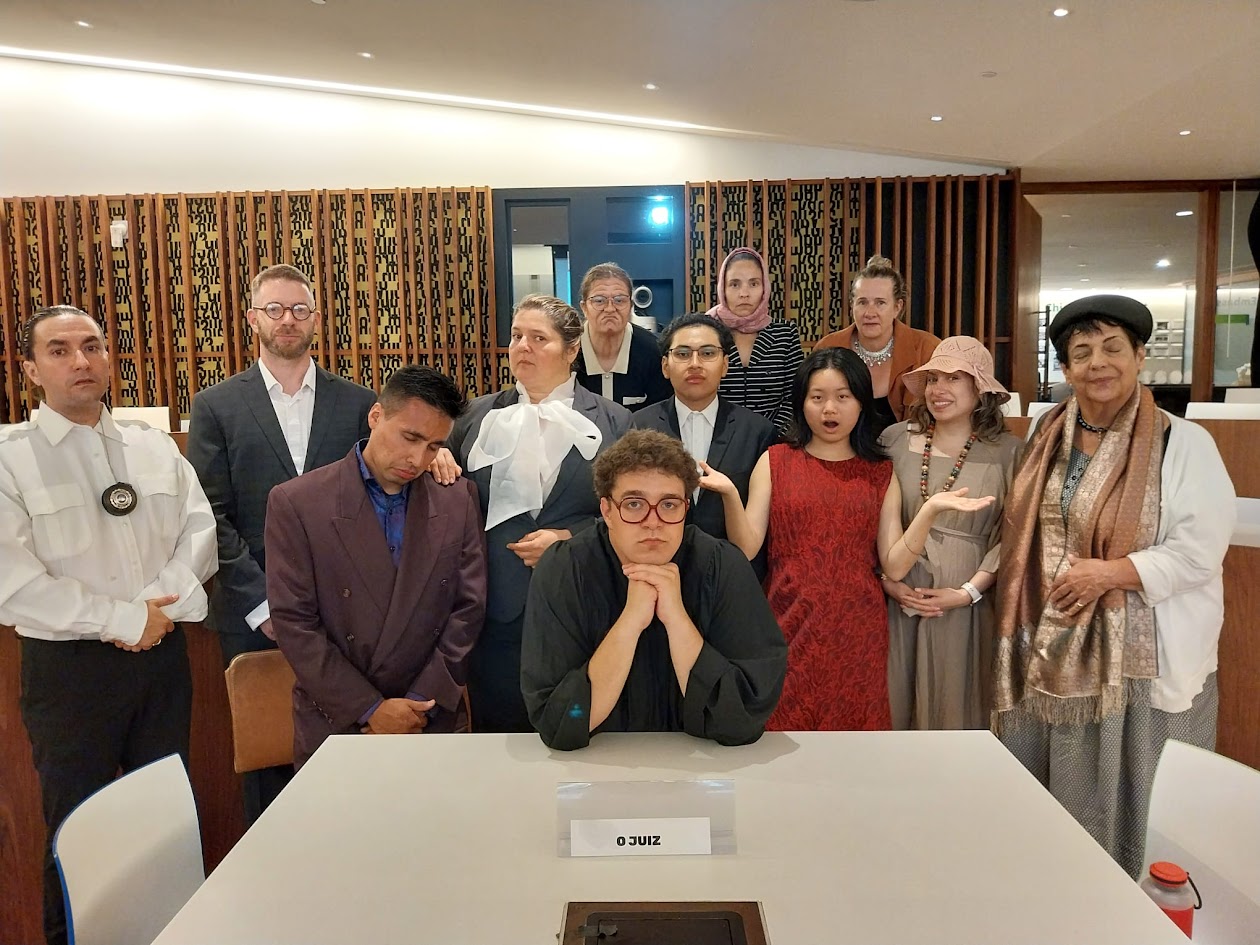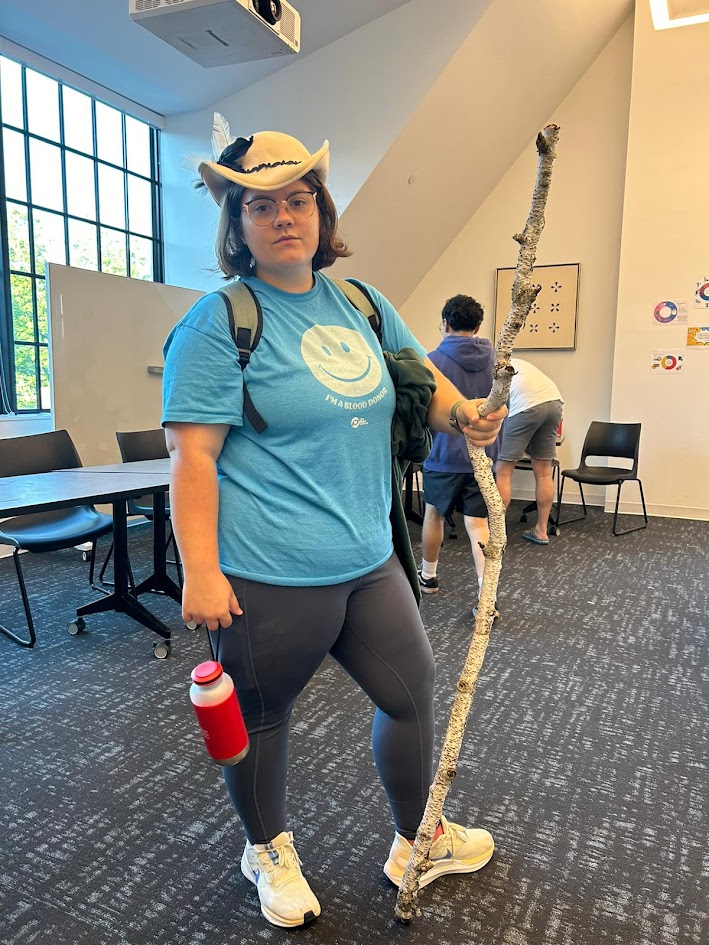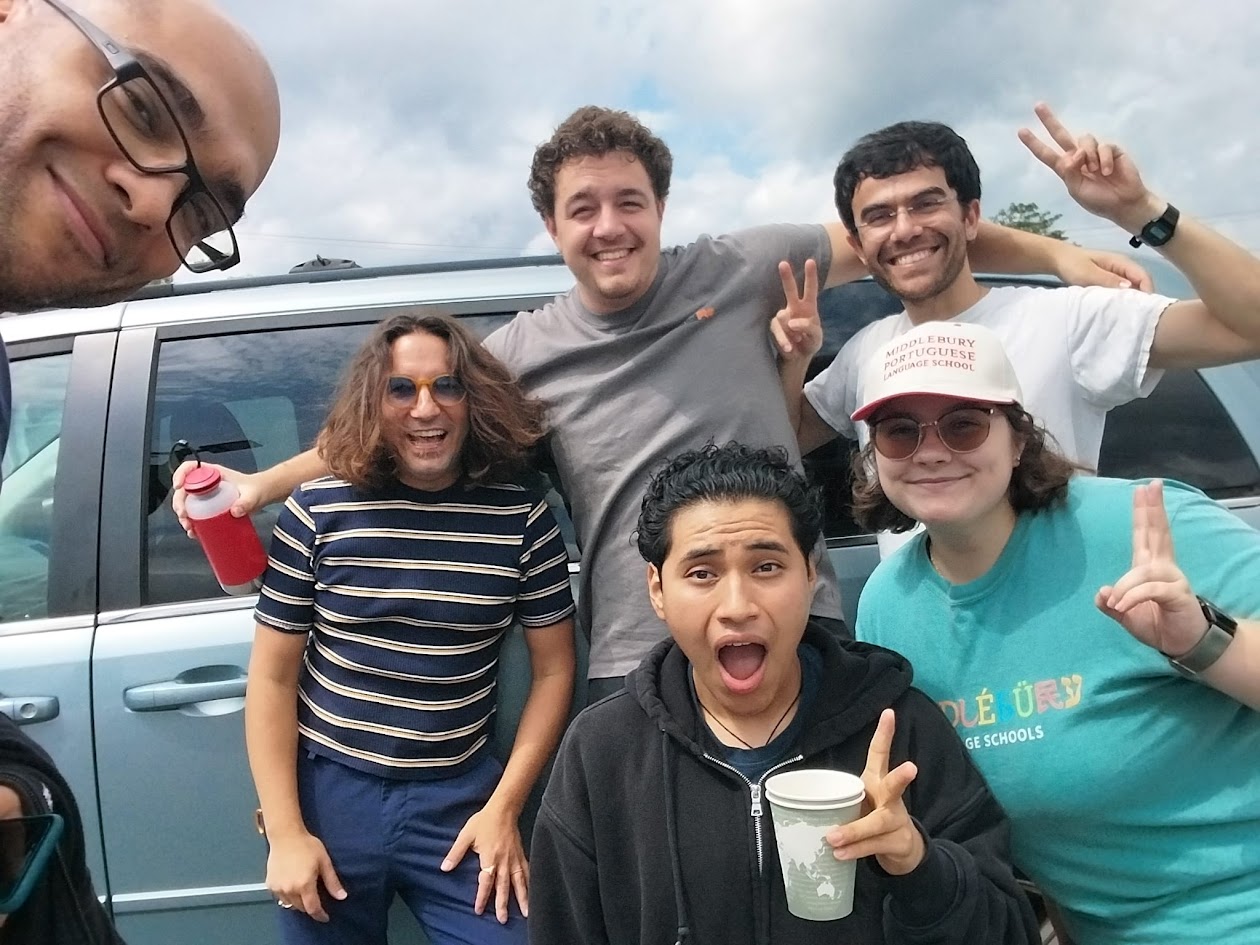Meet 7-week Portuguese Immersion Student: Chelsea Maxwell
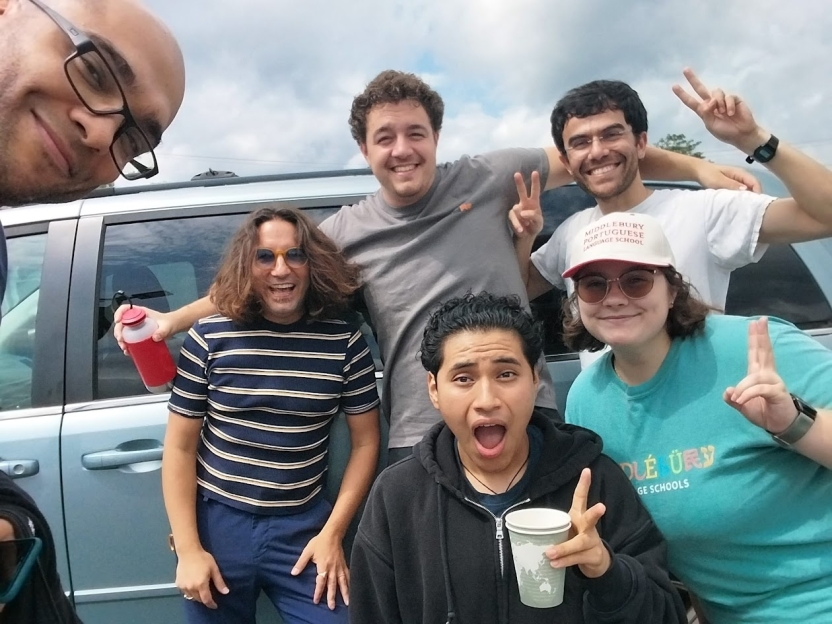
With the consistent support of her classmates and the dedicated faculty and staff of our Portuguese School, Chelsea Maxwell saw her language skills improve each and every day. She can now confidently hold a conversation or read a book in Portuguese.
Chelsea Maxwell
Hometown: Broken Bow, Oklahoma
Program: 7-week Immersion
Current: Southeastern Oklahoma State University, Computer Information Systems and Political Science
Why did you choose to study Portuguese?
I chose to study Portuguese because of the language’s deep connection to many countries around the world that have experienced colonization and continue to carry the cultural legacies of that history. As a daughter of the Choctaw Nation of Oklahoma, I’ve long lived between two cultures, Indigenous and American, both of which have shaped and informed each other in complex ways.
Growing up, I learned to navigate the tension between a version of American history often framed as triumph and progress, and the lived experiences of Native peoples who continue to feel the impact of that history. Today, the Choctaw Nation and many other tribes are reclaiming their stories, growing, and thriving, holding on to the values that make us unique while adapting to the demands of the contemporary world.
In learning Portuguese, I hope to explore the experiences of Indigenous peoples in Portuguese-speaking countries who share a similar colonial history, and to strengthen cultural ties between the Choctaw Nation and tribal communities abroad. Studying Portuguese is not just about acquiring a language, it’s a way to build bridges between communities that have more in common than we often realize.
What surprised you about your experience at the Middlebury Language Schools?
What surprised me the most about the Middlebury Language Schools was how helpful and open the professors and staff were. If I needed late-night homework help, a shoulder to cry on, or just someone to talk to, there was always someone I could turn to.
Everybody there was rooting for my success, and that support truly helped me in learning Portuguese.
Why did you choose to study at the Middlebury Language Schools?
At first, I chose Middlebury because I was told that if I wanted to improve my Portuguese skills, it was the place to be.
After doing my own research, I discovered why Middlebury was, and still is, the place to be: because it works!
I spoke with people who had done the program and read about their experiences, and everyone said the same thing: I came out knowing a lot more than I came in with. There was also the appeal of being fully immersed in the Portuguese language and being taught by people whose first language is Portuguese.
Please describe how your language skills improved due to your studies at Middlebury.
Before Middlebury, when people asked how well I knew Portuguese, I would always say I knew about as much as a toddler just beginning to learn how to read.
During the program, my skills in reading, writing, and speaking improved tenfold.
I won’t say I’m now perfectly fluent, but I can confidently hold a conversation and read a book. This fluency was accomplished through the immersive and rigorous learning environment which Middlebury provides.
What makes the Portuguese School a unique place to learn the language?
The Portuguese School was a unique learning environment because of everyone’s commitment to the Portuguese language and the cultures attached to it. All of the students and professors were fully dedicated and wanted to get the most out of the experience.
Every professor, whether they were your instructor or not, was there to help you, and if you were struggling or needed support, they gave their time and energy freely.
The director of the Portuguese program would even reach out to check in on me, see if I needed help with my work, and encourage me to attend more events. Having such a diverse cohort, all committed to the language, also made it a welcoming and collaborative space where we could learn from one another.
Describe your typical day at Middlebury.
My typical day at Middlebury started around seven in the morning, as I fought off the grogginess from the previous day’s activities and hurried to get ready for breakfast. People always say breakfast is the most important meal of the day, and that’s especially true at Middlebury. Every meal was eaten together with the Portuguese School, and breakfast helped my brain switch from sleepy mode to learning mode, speaking and using Portuguese for everything.
After breakfast came our first class: grammar. In grammar class, we learned new grammatical rules, vocabulary, and practiced listening and reading comprehension. Then we had a fifteen-minute break before our second class: cultural studies. Each week focused on a different topic related to Lusophone cultures around the world. Some memorable projects included creating our own Turma da Mônicacharacters and designing our own carnaval bloco, which we marched through the cafeteria while singing.
After class, it was time for lunch, where everyone excitedly discussed what we had learned while trying to use our new language skills.
Afterward came a small break, which I often spent enjoying Vermont’s gorgeous scenery. Then came the clubs.
The Portuguese School offered so many clubs and opportunities to practice Portuguese, each one letting us build language skills and connect with our peers.
I personally participated in the podcast club, reading club, cooking club, and theater club.
Throughout the week, we also had special events: weekly lectures, movie nights, festivals, hangouts, art classes, performances, and more. After the day’s activities, I would sit down to work on my homework and eventually wind down to sleep, just to do it all over again the next day.
If you’ve had other language learning opportunities, how would you compare them to your experience at Middlebury?
Before Middlebury, I participated in another immersive Portuguese language program, the Critical Language Scholarship (CLS), held in Rio de Janeiro, Brazil. These programs are similar in many ways, with the major difference being location. While I would never trade my time in Rio, I learned much more at Middlebury. CLS is a wonderful program, but not everyone followed the language pledge, and at times it felt like I wasn’t making real progress.
At Middlebury, the Language Pledge® was taken very seriously, and I could see my improvement every day.
CLS was more of a “go out and explore” experience, while Middlebury focused on group activities and building a sense of community within the cohort.
What advice would you give someone wanting to attend the School of Portuguese?
The one piece of advice I would give is: even if you think you can’t do it, you can!
I won’t sugarcoat it: this program is challenging, and you won’t breeze through it. But it’s worth it. The experience and knowledge you gain make every moment of hard work worthwhile.
How has Middlebury helped you other than with language acquisition?
When I first arrived at Middlebury, I thought I was just there to learn Portuguese, but I was completely wrong. Don’t get me wrong, I made amazing strides in my language skills, but I also grew personally.
I built lifelong connections, both professional and personal, that will help me in my future career.
Middlebury also helped me realize how much I’m capable of. Because of this experience, I know I can and will achieve my dream of becoming a lawyer for my tribe, the Choctaw Nation of Oklahoma.
What is a memory from the School of Portuguese you will not forget?
There are so many memories I’ll never forget. Sitting late at night on the front lawn with my entire cohort, talking and watching the stars. Teaching my classmates how to make fry bread during cooking class, while learning Indigenous recipes. Performing a play we had thrown together the night before and receiving a standing ovation. Sharing joy and laughter during meals, classes, or even in the dorm common room. This program was hard work, and there were moments I just wanted it to be over, but I gained so much. Sure, I left with stronger Portuguese skills, but more importantly, I left with unforgettable memories that I’ll carry with me forever.
Applications for the summer 2026 session of our 7-week, 9 credit immersion program at the Portuguese School open on November 3, 2025.
Gather your materials today.

